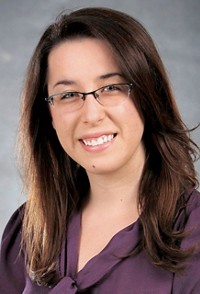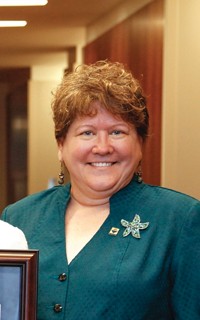Advertisement
Grab your lab coat. Let's get started
Welcome!
Welcome!
Create an account below to get 6 C&EN articles per month, receive newsletters and more - all free.
It seems this is your first time logging in online. Please enter the following information to continue.
As an ACS member you automatically get access to this site. All we need is few more details to create your reading experience.
Not you? Sign in with a different account.
Not you? Sign in with a different account.
ERROR 1
ERROR 1
ERROR 2
ERROR 2
ERROR 2
ERROR 2
ERROR 2
Password and Confirm password must match.
If you have an ACS member number, please enter it here so we can link this account to your membership. (optional)
ERROR 2
ACS values your privacy. By submitting your information, you are gaining access to C&EN and subscribing to our weekly newsletter. We use the information you provide to make your reading experience better, and we will never sell your data to third party members.
Careers
Culture Club
Companies that combine exciting jobs with a high quality of life at work earn employee loyalty
by VICTORIA GILMAN, C&EN WASHINGTON
October 18, 2004
| A version of this story appeared in
Volume 82, Issue 42
A good working environment has long been a catchphrase in classified ads, but the definition of such an environment can vary according to company needs and individual tastes.
Many companies satisfy employees with good salaries and standard benefits such as insurance and retirement plans. Others go beyond the standard to develop a culture that will best ensure worker happiness. In its annual profile of the "best companies" for chemists, C&EN talked with five firms across several chemistry disciplines that stand out as leaders in establishing good employee relations.
Mary Tilley, East Coast operations leader for medical products at W. L. Gore & Associates Inc. in Newark, Del., loves the company where she has worked for the past 23 years. She freely admits, however, that "Gore is not for everyone."
The firm, which is most famous for developing Gore-Tex brand fabric, houses four main divisions, including a medical products arm that specializes in implantable devices. Applicants seeking a traditional model of career development might be surprised by Gore's unique employment system.
For example, employees--all of whom are referred to by the firm as associates--are encouraged to choose the projects they want to work on and to create their own job description, a perk Tilley describes as a "never-ending opportunity."
"I've chosen to change my job and my division many times. It makes Gore an interesting place to work," she says.
Tilley says the company's biggest advantage is its tremendous focus on people. The firm has traditionally built smaller facilities to accommodate small teams of associates. "We try to organize things so everyone knows everyone else, and people are able to move into the jobs that align with their strengths," she says.
In addition, Gore uses a peer-ranking process to determine compensation, Tilley says. That way, no single person is responsible for managing an employee. Team members rank each other's performance and submit their evaluations to a committee of established associates within their facility. The committees meet annually to review the rankings and discuss each worker's salary and professional development.
THE PEOPLE on the committees are carefully chosen, she says, and sometimes additional associates are invited to sit in and observe the discussion to help them learn about the process. "People on the committees take a lot of pride and put a lot of effort into making the system fair," she says.
Tilley is also enthusiastic about Gore's flexible hours that accommodate working parents and about its community-inspired facilities that foster social interaction. Almost every facility has a volleyball court, and many also have large areas of open ground for associates to enjoy group sports such as soccer, she says. In November, she says, Gore will open a new day care center for its East Coast facilities.
An on-site day care center is one of the major reasons Jim Marsters appreciates working at biotechnology giant Genentech in San Francisco. "When my son was little, I could go over and see him during my lunch hour," he says. Genentech is particularly supportive of families in its benefits package--the firm offers adoption assistance, nursing rooms, domestic partner benefits, and a resource center called Lifeworks that helps employees plan for such family needs as elder care, school selection, and college financing.
Marsters says he also enjoys the company-sponsored health club membership and the Friday-evening socials that allow employees to mingle each week over free refreshments. But Marsters, like Tilley, is perhaps most passionate about his company's culture.
"I like Genentech's entrepreneurial environment and the excitement about science," he says. In addition, he is enthusiastic about the opportunities within the company for chemists to work closely with scientists in other fields.
Marsters was first exposed to Genentech's working environment as a postdoc following graduation from the University of California, San Diego, in 1986. He was then hired as a synthetic organic chemist and has grown with the company to become associate director of medicinal chemistry. Now that he's in a role where he must evaluate job candidates, he says he is attracted to good scientists who emphasize innovation.
"A lot of scientists are afraid that they won't be recognized if they are creative and think outside the box," Marsters says. Genentech, he explains, would appeal to creative thinkers because it has a culture of rewarding success so that people know how much the company appreciates their unique contributions.
For example, all employees are offered stock options and are part of the yearly corporate bonus system that allows them to share in the firm's financial performance. In addition, outstanding teams or individuals are often awarded cash bonuses when they reach key milestones.
RECOGNITION FOR individuals is also a major benefit at AstraZeneca, says Sue Stokes, an organic chemist working at the drugmaker's Waltham, Mass., research and development facility, about 10 miles outside of downtown Boston.
"I know what I do is important--I'm not just another cog in a big machine," she says. According to Stokes, managers at Astra Zeneca are tuned into employee needs and concerns. Executives decide what projects to focus on, but their decisions are based on feedback from the employees. "I really feel that management is listening," she says.
Stokes also praises the firm's emphasis on a good work-life balance and notes that she has never felt restrained because she is a woman scientist. "That's not an issue here," she says. In fact, AstraZeneca is lauded by Working Mother for doubling its number of women executives in 2003.
Following a postdoc at Boston College, Stokes joined the Waltham facility in 2002 when it was still in a fledgling state and was immediately impressed by the other employees' excitement about their work.
"It was an electric place to come into," she says. "We've grown since then, and it's stayed that way."
John Primeau, head of infection chemistry at AstraZeneca, says the initial recruitment frenzy at the Waltham lab is tapering off, but he expects hiring to continue to accommodate steady growth. In coming years, the firm will be looking to add new chemistry hires at all experience levels and in a variety of disciplines, he says.
Hiring has also been active at Applied Materials, a semiconductor equipment manufacturer headquartered in Santa Clara, Calif. Ann Parriott, vice president of human resources for Applied Materials' Global Services department, is a relatively recent hire. Although new to Applied Materials as of 2003, she previously worked for Intel for 10 years and has developed an affinity for being around innovative scientists.
"The biggest thing is that this is a very results-oriented company--technology is the center of what we do," she says. "We are always looking for people who see innovation and growth as huge parts of the job. We want everyone at Applied thinking, 'How do we make the company better?'"
Applied Materials seeks to attract motivated workers by fostering a highly diverse, globally minded environment. With 12,000 employees spread across 70 locations in 11 countries, Applied Materials is committed to developing a workforce that reflects its international presence, Parriott says. For example, Fortune reports that, in 2004, minorities made up 17% of Applied Materials' executive managers.
She credits a strong company recruitment program and strategic alliances with educational and professional societies for helping Applied Materials find the best job candidates among the underrepresented groups. She also notes that the firm continues to promote diversity beyond the recruitment phase via ongoing training programs for employees.

According to Parriott, Applied Materials' focus on diversity is complemented by a strong commitment to philanthropy. "Encouraging a sense of community is what appreciating diversity is all about," she says. In addition to contributing directly to local charities, Applied Materials will match donations made by its employees.
EDUCATION IS a major focus of Applied Materials' community activities. The company funds a charter school in San Jose, Calif., that seeks to help Hispanic students go to college. Employees can also get involved on a more personal level by participating in "Teach to the Future," a program in which Applied Materials sponsors workers to teach classes in local high-risk schools.
Like Parriott, Rich Marcogliese joined his employer relatively recently but brought along significant industry experience. After 25 years working for Exxon, Marcogliese was given the option of transferring to Valero Energy when it acquired the Exxon refinery he managed following the firm's merger with Mobil Oil.
"I was given an opportunity to join a company with a great culture that is very growth oriented," he says. After a year overseeing the refinery's transition, he moved to Valero's corporate headquarters in San Antonio, Texas, eventually becoming the senior vice president of refining.
Marcogliese says he is impressed by Valero's strong employee-friendly culture. In addition to what he describes as "outstanding pay" that includes annual bonuses and stock options, workers are offered a highly flexible benefits program that allows them to design a plan best suited to themselves and their families.
Company growth has been a key influence on Valero's employee relations, Marcogliese says. The firm has expanded from a single refinery in 1996 to 15 refineries in 2004, including two outside of the U.S.
Throughout this expansion, he says, Valero executives have maintained a high level of visibility among employees, touring facilities and attending social gatherings to encourage employees to provide feedback and ideas. In fact, the company rewards motivated thinkers through a special bonus of up to $10,000 for employees who offer ideas that save the company money.
Valero doesn't just share its profits with employees--community and charity projects are a large part of the firm's culture, Marcogliese says. Annual United Way campaigns, two charity golf tournaments, retail fund-raising campaigns for the Muscular Dystrophy Association and Children's Miracle Network, and other gifts culminated in a total of $16.5 million of charitable giving in 2003.
Marcogliese tells job seekers considering a position with Valero that they will find exceptional opportunities for personal and professional growth at the firm. Parriott at Applied Materials says applicants will be happy there if they have strong results and customer orientation as well as a focus on community involvement. And Tilley at W. L. Gore says she sometimes hears skepticism about the unusual way people are managed at the company, but candidates who are self-motivated will thrive in such an environment.
AstraZeneca's Stokes says she would tell potential coworkers about the great work-life balance that her company offers. And her energetic attitude about coming to work every day would probably serve as an even greater indicator that the company is a good place to build a career.
"I don't really recruit people," Primeau says after hearing Stokes describe working life at AstraZeneca. "The environment and the young employees' enthusiasm do that."









Join the conversation
Contact the reporter
Submit a Letter to the Editor for publication
Engage with us on Twitter